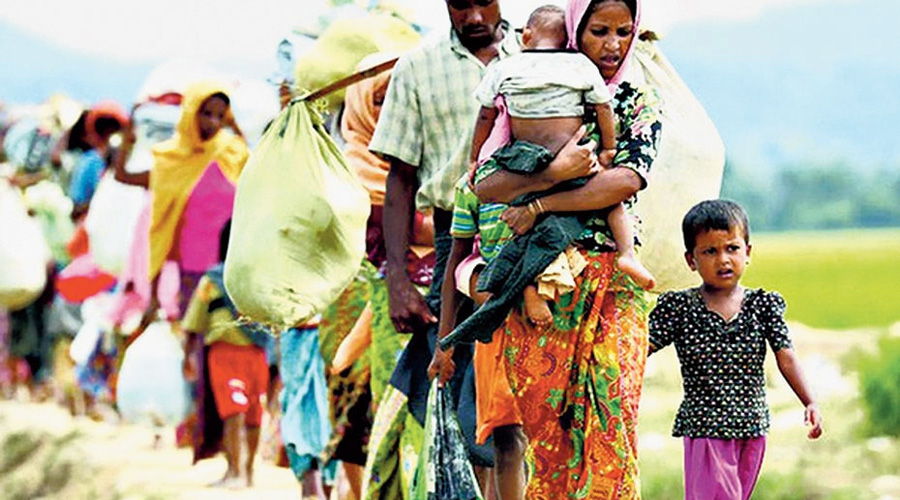A 14-year-old Rohingya Muslim girl has been taken to a border town in Manipur for deportation to Myanmar, police officials said on Thursday, as the UN refugee agency and rights groups pressed New Delhi to halt the process.
Tens of thousands of Rohingya, who are denied citizenship in their home country Myanmar, have lived in India for years but the Centre regards them as a security threat and has started detaining them.
Police have taken the girl to a border crossing in Manipur, where paperwork was being finalised to send her back to coup-hit Myanmar. She had been sheltered for more than a year in Assam, while her family lived as refugees in Bangladesh’s Cox's Bazar.
“It is under process,” Assam police officer B.L. Meena told Reuters, referring to her deportation. “This was previously scheduled.”
Diba Roy, founder of non-profit Nivedita Nari Sangshta in Assam’s Silchar town that had cared for the girl, said local authorities had been informed that she did not have family in Myanmar.
“But she was sent to Myanmar,” Roy said, adding that she had received instructions from federal authorities to hand over the girl to local police this week. “We have only obeyed the order.”
The foreign and home ministries did not immediately respond to requests for comment.
The UN refugee agency, UNHCR, opposed the deportation. “The situation in Myanmar is not yet conducive for voluntary return in a safe, secure, and sustainable manner, and returning the child to Myanmar may place her at immediate risk of serious harm,” a UNHCR spokesperson said.











